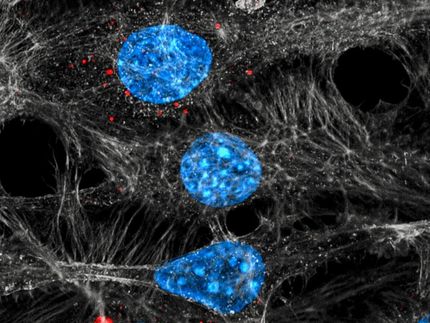Research points to potential chink in cancer's armor
Advertisement
Scientists at the University of York have identified and successfully silenced a gene that appears essential to cancer cell survival. Professor Jo Milner and Dr Shafiq Ahmed, from the YCR P53 Research Unit in the Department of biology, used a process called RNA interference to target the JNK2 gene in both cancer and healthy cells. The cancer cells died but the healthy cells were unaffected. This discovery suggests that the survival of cancer cells depends upon certain genes which healthy cells can survive without, an important step towards the development of the next generation of cancer treatments.
Dr Ahmed said: "Our results indicate that one day it may be possible to treat cancer without the harmful side-effects so often associated with today's treatments. Our study has identified a cancer-specific target which could be selectively inhibited using small-molecules, or other means, without the use of radiotherapy and chemotherapy."
This laboratory-based work is still at a very early stage and the next step is to test a larger range of different cancer cell types and also to test normal healthy cells from different tissues. The research, which examined colorectal cancer and breast cancer cell lines among others, was funded by Yorkshire Cancer Research and is published in PLoS One .
A major aim of Professor Milner's research team is to identify cancer-specific survival genes and to ask if such genes offer a new route for cancer treatment. This field of research has been made possible through the development of RNA interference which allows the silencing of a single gene amongst thousands of genes.
Professor Milner said: "Our approach is now revealing unexpected properties for certain genes including JNK2. We have also studied JNK2's close relative, JNK1, and found that these two genes seem to oppose each other. JNK1 and JNK2 resemble the 'Jekyll and Hyde' for cancer cell survival.
"A further surprise is that the mechanism by which these two genes function under normal every-day conditions appears distinct from the mechanism which is activated by current anti-cancer therapies."























































